Student Rebellion ’22: “If we tell each other that creating a sustainable education system is unrealistic, where does that leave us?!”

(Photo by Ann-Sophie Porsmose Christensen)
What started as a protest by 350 CBS students has now grown into a national student rebellion led by students from almost all the universities in Denmark. The students are determined to reclaim their democratic power and are launching an assault on reduction plans, financial cutbacks and poor study environments. On Wednesday 12 January, Student Rebellion ’22 will stage its first protest in front of Christiansborg in Copenhagen and in City Hall Square in Århus.
“What do you do when your voice is not heard, and proper democratic channels are blocked? Well, you unite outside the system and rebel against it,” says Ian Felix Dejean, a co-initiator of Studenteroprøret ’22.
It all began with a meeting on November 12 where the Senior Management at CBS presented the CBS Board of Directors with a plan reflecting the Danish government’s political agreement of June 2021 on “increasing and improving opportunities for education throughout Denmark”.
The agreement entailed CBS reducing its intake by up to 10%, corresponding to 628 study places in total. At that same meeting, the Senior Management presented its plan for implementing the reduction: Six programs must close starting from 2023.
That was the final straw for many CBS students and marked the beginning of a historical student rebellion. In other words, the first ever student rebellion at CBS has turned into one of the largest revolt of its kind in Denmark since 1968.
“We must plan our next move”
The Senior Management’s proposed reductions fueled widespread outrage spanning faculty members as well as previous and current students, and the Student Rebellion began gathering momentum in response.
A range of protests and happenings were staged. More than 3,000 signatures objecting to the plan were collected, and on the day before the CBS Board was to decide whether to approve the plan, the Student Rebellion arranged a funeral for diversity at CBS and the futures of 1,000 female students a year who will be unable to attend CBS as the study places removed hit mainly female-dominated programs.
All the objections appeared to convince the management to reverse its decision to cut two study programs. However, the fate of the remaining four programs was unchanged.
“We will definitely take this matter further. But it will be a longer and tougher political fight from here on. We must plan our next move,” CBS Student and Student Rebellion co-initiator Morten Levinsen said to CBS WIRE.
And that is precisely what they did. A few days later, the ‘Student Rebellion at CBS’ transformed into the ‘Student Rebellion ‘22’.
“We’ve had enough!”
“Students are no longer thriving, our democratic influence is decreasing for every year that passes,” Morten Levinsen explains about the transformation.
He, alongside CBS student Ian Felix Dejean, is one of the initiators behind the ‘Student Rebellion ‘22’. And according to him, the revolt is a culmination of long-term frustration on a national scale.
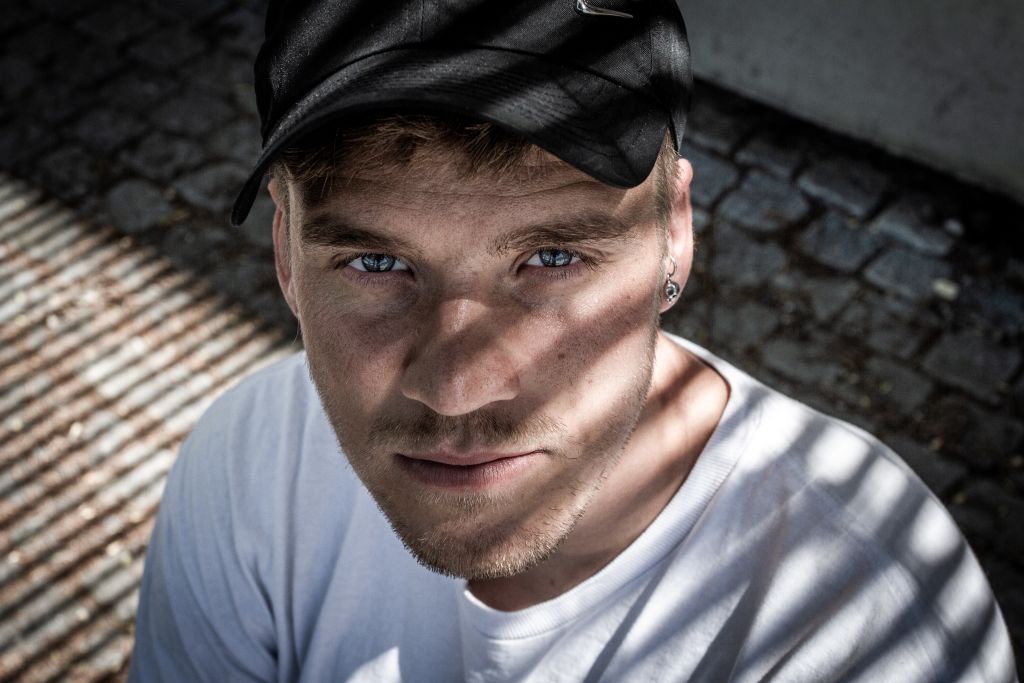
“Students are no longer thriving, our democratic influence is decreasing for every year that passes,” says Morten Levinsen, one of the Student Rebellion’s initiators. (Photo by Anna Holte)
“It has been brewing for a very long time. Danish students have been complaining behind the scenes for ages, but very little has happened. We need to present a united front where we draw the line and become the solution instead of continuing to oblige the system and remaining part of the problem. And that’s what we’re doing right now,” Morten Levinsen says and continues:
“We’ve had enough. We’re frustrated about consistent cutbacks and poor decisions in the educational system. We’re frustrated that student welfare is constantly deteriorating and causing stress. We’re intensely frustrated about the learn-and-apply logic that prevents us from acquiring the mindset that is crucial for solving the multiple crises the world is facing.”
Peace is over
CBS was established in 1917, and for 105 years the relationship between the institution and its students was peaceful and quiet. Obviously, those days are gone. So, why are the students currently rising against their once cherished business university, and moreover the government?
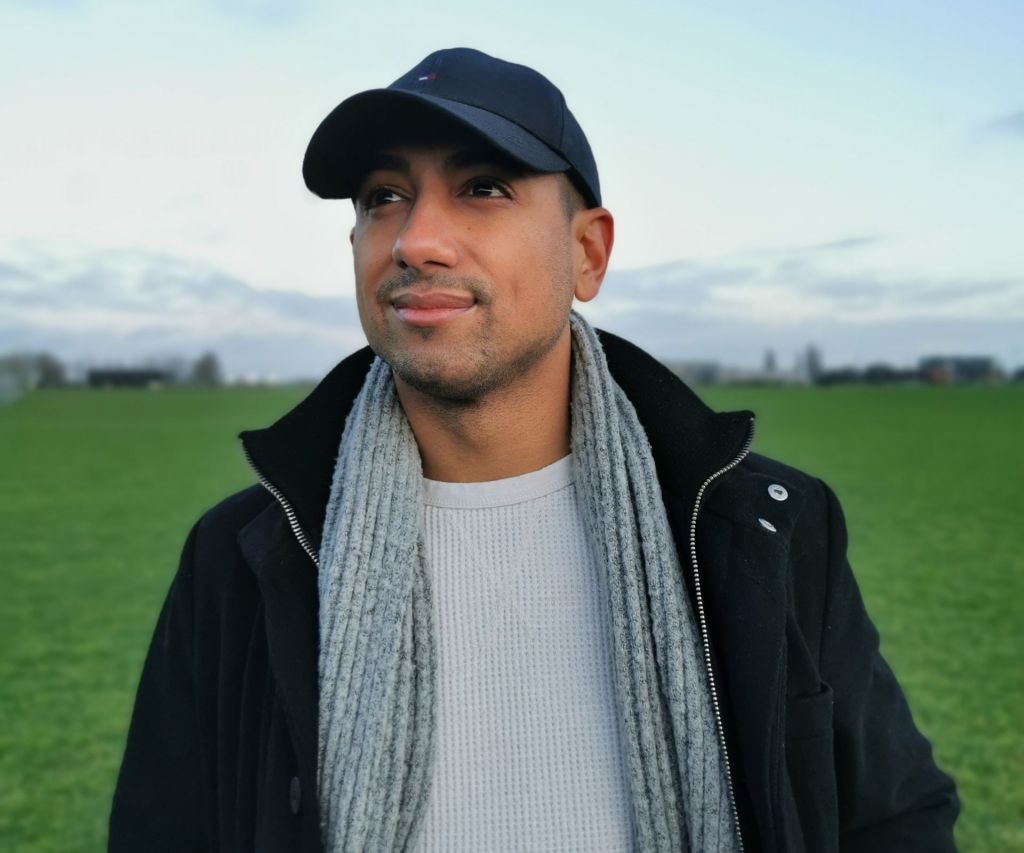
“What do you do when your voice is not heard, and proper democratic channels are blocked? Well, you unite outside the system and rebel against it,” says Ian Felix Dejean, a co-initiator of Studenteroprøret ’22.(Private photo)
“When CBS, to comply with the agreement made by the government and signatory parties, chose to close the programs, that was a hasty decision. At the same time, we students have not been properly included in the decision process, even though we will be hit most by the consequences,” says Ian Felix Dejean and goes on:
“The student democracy has simply been overruled. On top of that, the government’s relocation agreement underlying this whole issue is just one of many previous examples of how the voices of the Danish students in general are being ignored.”
“Therefore, the rebellion is happening right now because we feel sidelined, both by the politicians and our own university due to the way they chose to execute the political agreement.”
And the CBS students are not alone in feeling overlooked.
Their frustration is so far shared by students from the University of Copenhagen, Aalborg University, Aarhus University, the University of Southern Denmark, Roskilde University, CPH Business Academy, the Technical University of Denmark and Aarhus School of Architecture, which have all joined the Student Rebellion ’22.
Together, they aim to take reclaim their democratic power, starting with a mutual standpoint: a manifesto.
Reject the political agreement
Starting with the words: “We are the Student Rebellion ’22 – We are the reckoning with the performance society”, the movement has written a manifesto that was first published in the national newspaper Politiken and CBS WIRE.
It consists of five concrete demands that need to be fulfilled in order to “save the world, and by proxy ourselves”, as the students write. One demand on the list specifies the rejection of the political agreement on “increasing and improving opportunities for education throughout Denmark”.
“The thoughts behind the agreement are actually noble enough. I think it’s a great idea to create incentives for people who are living outside the large cities to stay and educate themselves,” Morten Levinsen says and continues:
“However, the problem arises when the government forces educational institutions in the big cities to close programs and reduce study places without giving the institutions the financing required to make up the deficit. What has been presented as a relocation plan has become a direct decommissioning plan.”
Moreover, Morten Levinsen explains, the CBS programs due to close are not just dispensable programs that the university could easily do without.
“The programs facing closure are some of the clearly most interdisciplinary, critical and dynamic study programs at CBS. And in a world of climate change, diversity problems and tech giants with gasping global ambitions, it is beyond my imagination that anyone can close down programs that equip us to address such challenges.”
And finally, as for the third demand concerning rejecting the political agreement, Morten Levinsen is doubtful whether it even makes sense to move the study programs outside the big cities.
“Without denigrating peripheral Denmark at all, one could wonder whether there actually is a need for study places out there? So far, the demand for them doesn’t seem huge. So, that’s a question I’m still missing the answer to.”
“It’s necessary!”
The other demands in the manifesto are headlined: “We demand a new University Act”, “Refinancing of higher education”, “Stop the learn-and-apply logic in our education system” and “Increase unemployment benefits for new graduates”.
At first glance, you might think the demands might be hard to fulfil. But for the two initiators of the Student Rebellion ’22, that approach is not valid.
“If we begin telling each other that it’s not realistic to create a sustainable education system where young people thrive and develop the right mindset that is needed for the future, where does that leave us? Which story are we telling each other then?” Morten Levinsen asks and continues:
“That said, it’s not even a question of whether or not it’s realistic. It’s necessary! For ages, we’ve been hearing how important it is to think with a sustainable mindset, to think differently. But with the present circumstances in the educational and political system, that simply isn’t possible!”
It is clear that Ian Felix Dejean and Morten Levinsen are dedicated to the Student Rebellion ’22 and its cause. And like other revolutions throughout history, this one also stems from a deep feeling of injustice that must be resolved, according to the two initiators.
“We want to reclaim our power. As young people, we are the future. We will be the ones with the knowledge needed to solve the problems the world is facing. However, today, as there are far more elderly than young people, politicians can accumulate far more votes by catering for the elderly,” Morten Levinsen explains and goes on:
“Therefore, if we don’t say ‘enough is enough’ and actively point out shortcomings, we’ll have to wait a fairly long time before the political spectrum turns its attention in our direction.
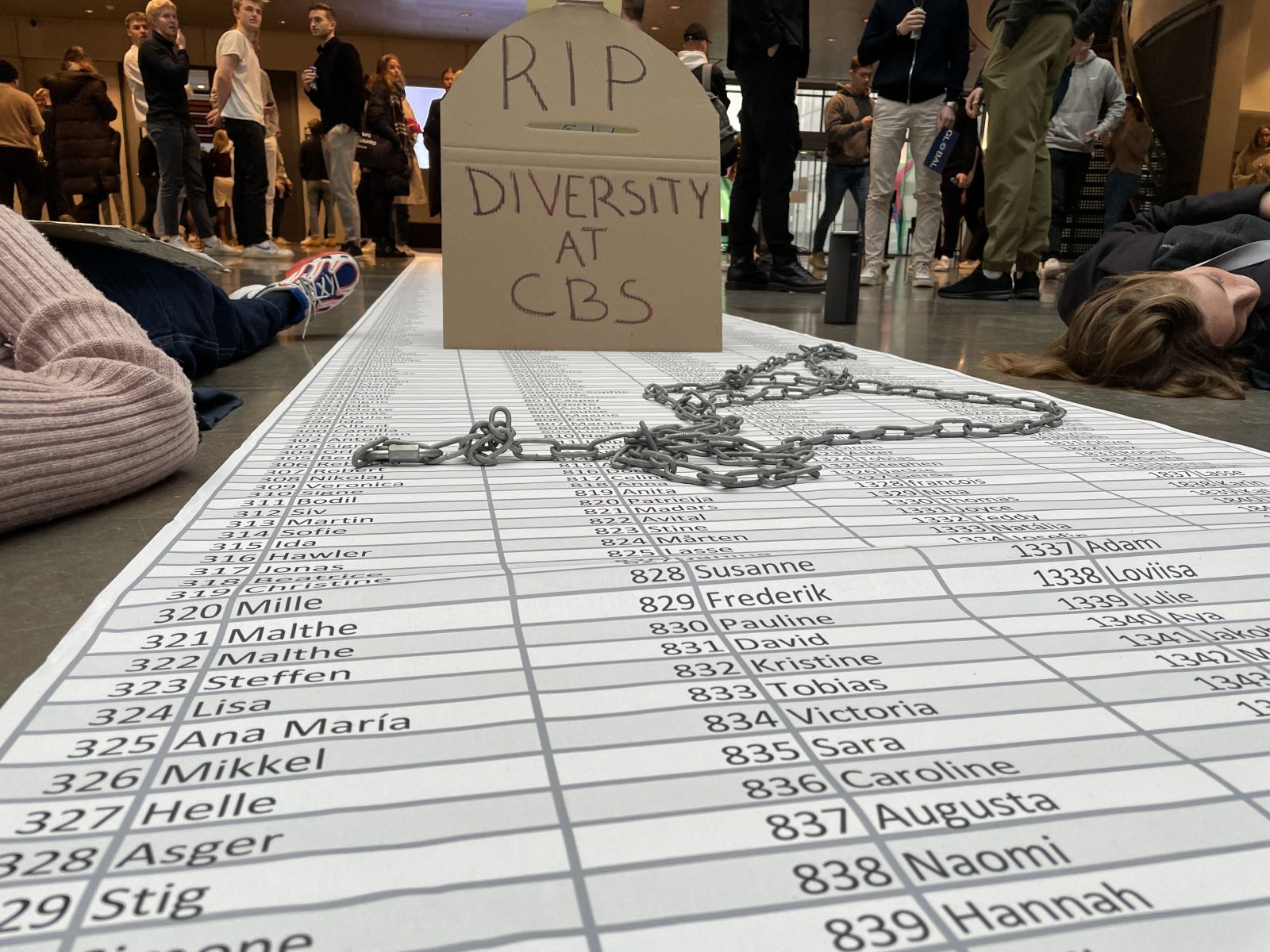
Rebels with a cause
Via the Facebook group Studenteroprøret ’22, which has nearly 2,000 members, the movement mobilizes new students every day by featuring debate contributions and delegating requests for members to write and send to various media outlets etc.
Across many different universities and study programs, the students are uniting under the same banner. And according to Morten Levinsen this, in itself, is unique.
“For the first time in history, that I’m aware, students of CBS are working side by side with students from the University of Copenhagen, Aalborg University, Aarhus University and the University of Southern Denmark Aarhus. That has never happened before, and it’s amazing,” he says.
But the “historic” Student Rebellion ’22 has only just pulled on its work gloves. On Wednesday, the movement will be demonstrating in Flakhaven in Odense as well as at Christiansborg Slotsplads in Copenhagen, with students singing protest songs from Højskolesangbogen (the Folk High School Song Book).
This event will coincide with the date the universities affected by the political agreement will submit their plans for how to execute the government’s demands.
That is just one of many events to come, according to Morten Levinsen and Ian Felix Dejean.
“Our next step will be to mobilize some of the administrative tasks so we can pull together as much as possible. In February, there will be a focus on the graduate rate, which is about to be reduced. Then, in April, along with the affected educational institutions, we will also be making our views clearly known when the government is scheduled to compose an overarching relocation plan,” Morten Levinsen says.
“So, in the next few months, there will be plenty for us, as students, to rebel against!”



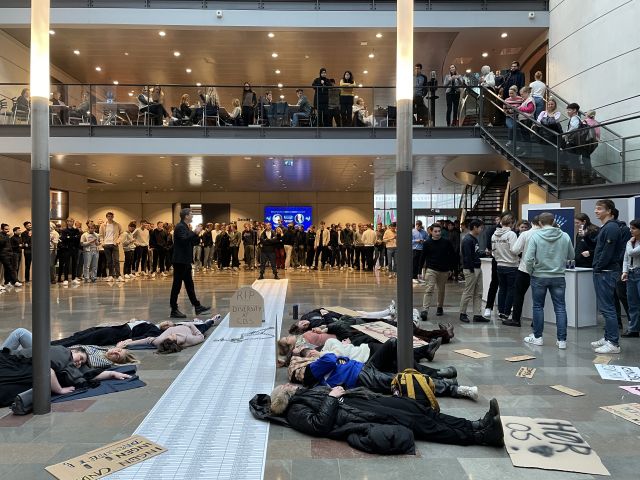
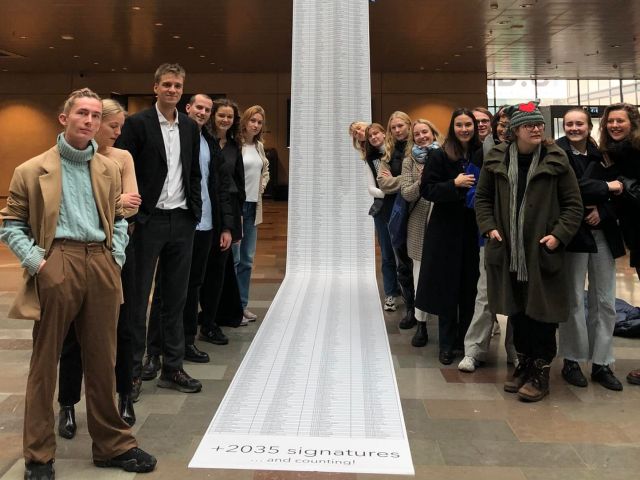
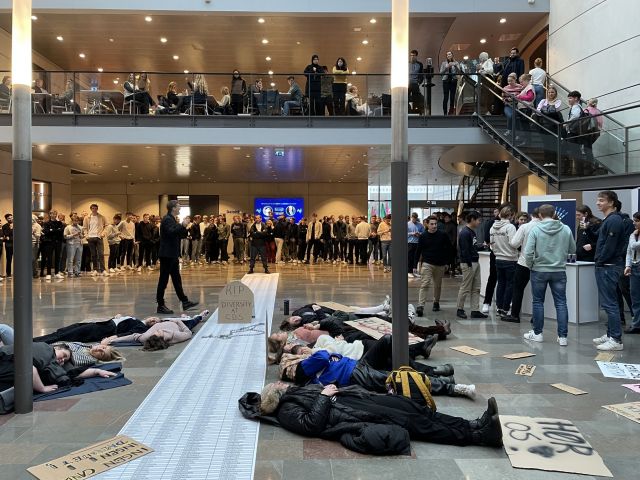
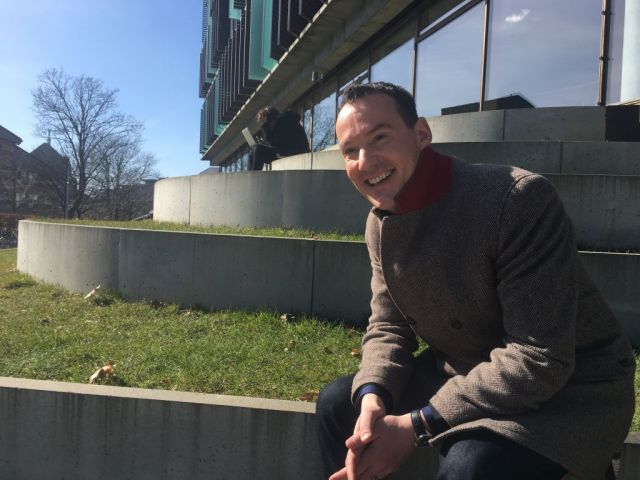
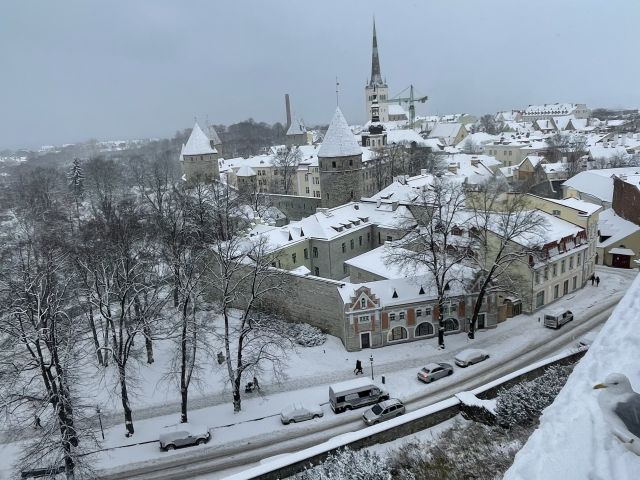




























































































































Comments